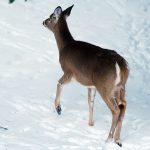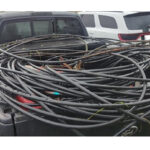Home »

Hot springs staying open during risk reduction burn
Parks Canada plans to start work on the 1.26-hectare Radium Hot Springs pools wildfire risk reduction project in Kootenay National Park.
The project is located near Highway 93, on the hillside directly above the Radium Hot Springs Aquacourt. Operations will be completed by March 31, 2023. Once completed, the project will reduce the risk of wildfire to visitors, staff and facilities.
The hot springs remain open during operations. Visitors to the Radium Hot Springs pools and motorists passing by on Highway 93 South can expect to see smoke and flames from pile burning. Hot springs visitors can also expect to hear and see chainsaw work. Operations are being completed mid-week when the facility is less busy.
Every effort will be made to limit smoke during pile burning. However, unpredicted changes in weather can increase and redirect smoke. Local community members with respiratory conditions or severe smoke sensitivities can be added to a smoke-sensitive list. Please contact our Fire Information Officer at [email protected] or 250-409-4011.
Safety is always the top priority for Parks Canada in all fire management operations. An area closure will be in place for the project area for the duration of operations. This closure will include a portion of the Redstreak Campground trail. An up to date list of area closures can be found on the Kootenay National Park webpage.
Decades of fire suppression have created dense forests with significant amounts of coarse woody debris throughout the park. This buildup of fuel poses a significant risk during periods of heightened wildfire danger and can result in high intensity wildfires that can spread quickly across the landscape.
Forest thinning and FireSmart techniques used during wildfire risk reduction work limits the intensity and spread of wildfires, and supports fire suppression operations. Once work is complete, the thinned areas will increase wildfire protection to visitors, staff and facilities. It will improve ecological integrity and increase resilience to climate change. In addition, it will enhance habitat for local wildlife populations.
Parks Canada, Lake Louise, Yoho and Kootenay Field Unit







